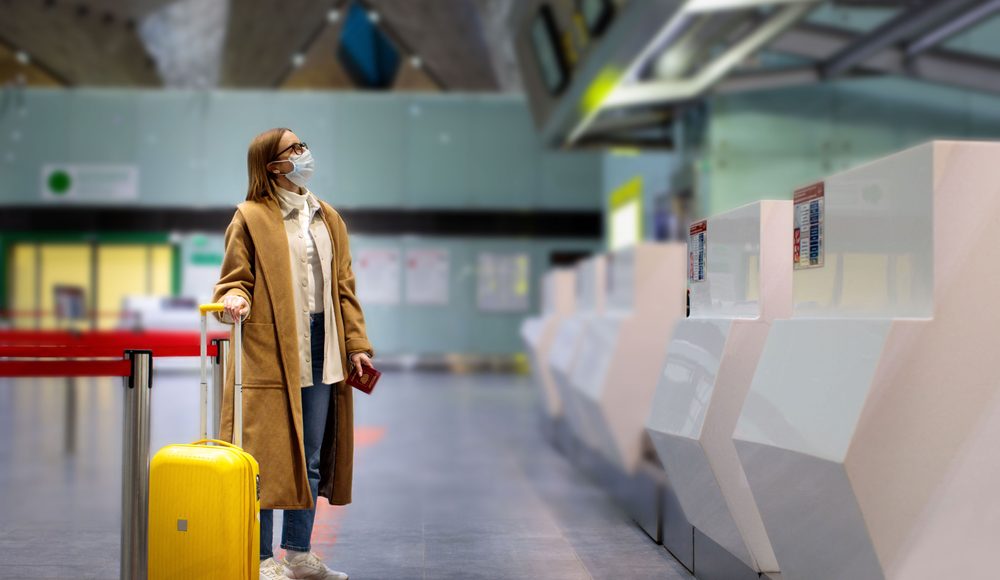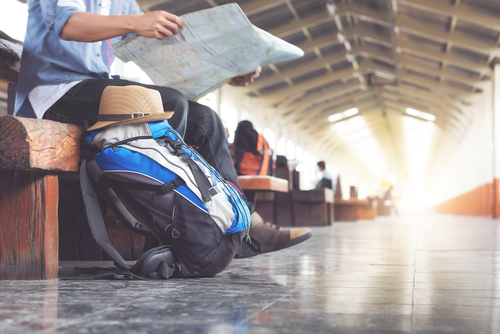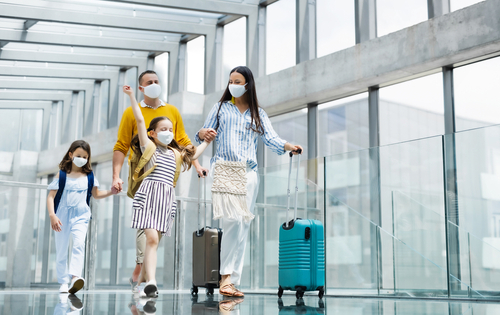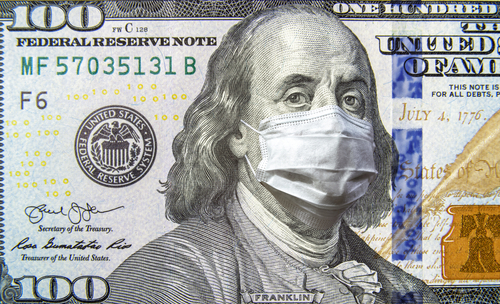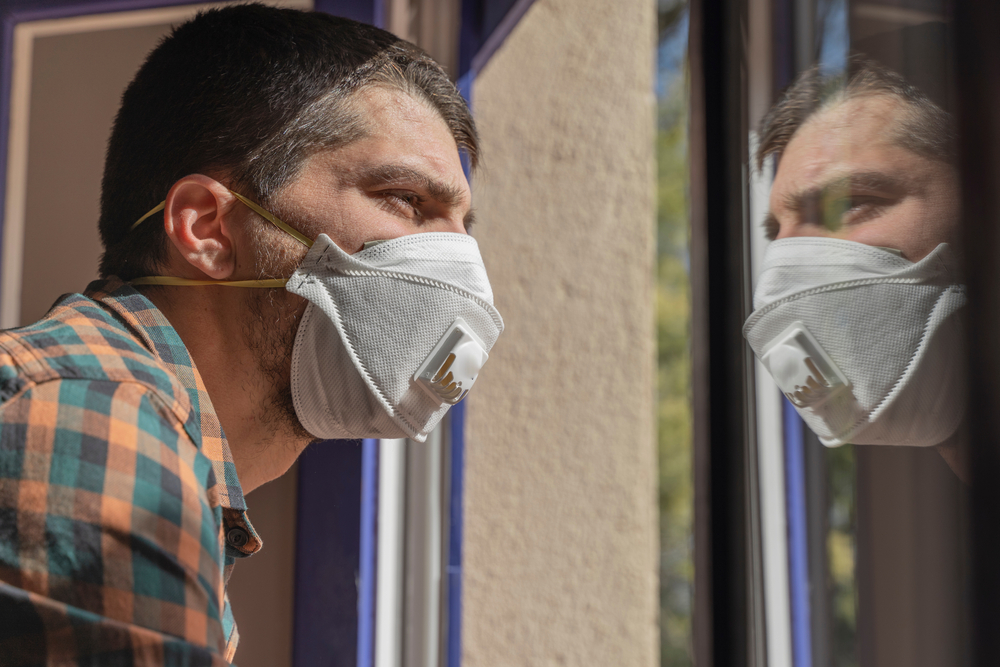The COVID pandemic has made it difficult for us to travel, and going overseas has become a challenging task.
If a trip is scheduled in the near future, there are some security practices and safety measures you should implement before departure. These measures have become mandatory if you want to be sure you come back home safe and sound.
Hopefully, my tips will help you have a safe journey overseas and avoid dangers, hassles, and aggravation of negligence.
Planning the trip
Before you actually board the plane, you need to take some time and organize your personal records. Some people are using business travel agencies to organize their trips since it seems less of a hustle these days.
However, I recommend searching online for any info that may prevent the trip from happening and familiarize yourself with the local rules, safety measures, currency, but also the culture of the people in the country you plan to visit.
The U.S. State Department’s website has a lot of resources updated weekly for the current traveling restriction and issues. Even more, you can search online on forums and even on social media to receive updates directly from the sources. There are a lot of travel advisories posted each day on local websites, and you will know prior to your departure what’s happening in those countries.
Even more, I strongly advise you to acquire the contact information for the embassy or consulate in the country you are going to visit. The situation may change overnight, and you may end up stuck in a country without having any clue of what’s going to happen next.
Also, make sure your smartphone has one or two apps that can help translate certain phrases and casual conversation in case you don’t speak the language. To be on the safe side, also get a pocket phrasebook, so you don’t have to worry in case you run out of power. You can use it to memorize phrases that will sometimes help you get out of dodge.
Your passport and visas should be in order, and your inoculation records updated. In certain cases, it may take months before you obtain a visa, and nowadays, there are delays due to the pandemic. Certain countries will require COVID testing, and this can be done directly at the airport, or you can do it at home 48 hours before departure.
Things you to do before departure
There are some things you should do before every departure. These were somehow mandatory, but since the times have changed, there are some new things you should consider. Letting your relatives and close friends know where you are going is a common-sense rule, but that’s not all. I usually give them access to certain important documents that would save me a lot of trouble and keep me safe when I travel overseas.
At least one of your relative should have access to the following:
- Your itinerary (full travel with possible, unpredictable stops)
- Birth certificate
- Marriage certificate
- Phone numbers and email addresses, but also social media information that will help them get in touch with you
- Points of contact in the country you are traveling to
- Proof of insurance and medical records
- Bank account information (credit card numbers and security codes)
- Recent picture (a frontal and one of your profile)
- Information that would make your identification easier (birthmarks, tattoos, etc.)
Besides these, my family also has DNA samples and fingerprints, and although this may seem an extreme measure, I have a logical approach to these. In case something horrible happens, it will be easier for rescue teams to identify me.
Even more, people I know are now making their will in case something bad happens. They feel safer knowing they left things in order in case they don’t make it back. It seems this has become a “mandatory” thing to do in case you get infected with the new virus.
Departure day
The big day has arrived, and you are ready to go to the airport. Make sure you reserve the needed time and be there earlier than suggested. Dealing with the TSA during these times takes longer in certain airports, and everyone needs to pay attention to their own safety.
Don’t forget to bring a face mask and a few pairs of disposable gloves. The masks are mandatory for boarding the plane, and the gloves will offer some peace of mind when touching various surfaces outside and inside the plane.
Also, make sure you dress accordingly and that you wouldn’t stand out. Dress like the natives to avoid attracting unwanted attention to yourself. The same is required of your travel companions as well, and keep in mind that women have certain restrictions and need to dress in a certain way when traveling to some Arab countries.
One particular thing I’m paying attention to when traveling is footwear. You should pick shoes that are comfortable for walking long distances regardless of the surface you are traveling on. I also avoid wearing jewelry or any flashy thing that could make me a target.
On myself, I always have an emergency contact information card. I usually have one in my wallet and one in a pocket that’s not easily accessible. My card contains information such as current medication, insurance details, blood type, and allergies information. There are also three contact numbers for my family and closest friend, but I also add consulate and embassy contact details. I also have a small USB stick attached to my keychain that contains various documents scans and additional information.
I don’t think there’s the need to stress this, but I will do it one more time. Make sure you don’t forget at home your tickets (better also have them on your phone beside the printed ones), passport, and ID card. The same goes for all the other documentation needed to enter a certain country (visa, shots records, etc.).
Make sure you have money for emergencies
Money plays an important role when you travel overseas, and you need to make sure you have plenty. I developed the habit of going to the bank and getting a few hundred dollars in small-denomination bills before any travel. I also go to a bank that can exchange dollars for the currency I need to have local money as well. Be advised that no all banks will do so, and you need to figure this out before your departure.
I often split the money in two and sometimes, in three ways, before traveling. Some go in my wallet, some on me, and some in my hand luggage. I never exchange money on location since it’s not always safe to do so, and many undesirable elements of society stake out such places. This happens all over the world, and they even do it in the airport to spot the whales (people that make large withdrawals), so they can follow them until the criminals can act.
Think about the credit cards
Visa and MasterCard go with me wherever I travel, and I have at least a few thousand dollars on each credit card that I can use in case of emergencies. I yet have to find a country that won’t accept these credit cards. I also recommend that once you get to the destination, spend some time, and check online for ATMs that are easily accessible along your travel route.
I strongly recommend you call your credit card company and let them know you plan on traveling to a certain country. If you fail to do so, they may block your cards, and you will not be able to use them. I can tell you from experience that it can be a pain in the behind having them reactivated when you are stuck in a foreign country.
In 2012 I traveled to India, and one of my credit cards was skimmed. They manage to make some online purchases in India, and they tried to withdraw money from it in the Philippines (I’m guessing they cloned it there). The credit card company called me, and they asked several questions to make sure “I wasn’t in two places at once.” Long story short, when it got back home, it took several trips to the bank, statements, and calls to get my money back.
The problem with credit cards is that scams are more and more frequent nowadays, and there are all sorts of machines ready to take your money. From fake ATMs to fake card readers and portable card skimmers that people are using in public transportation (no wonder RFID blocking wallets have become so popular).
Conclusion
Traveling overseas has become a real struggle, and Americans are now banned from entering certain countries. All that was mentioned in this article should be implemented without questioning the necessity to do so. You will be in a foreign environment where rules can change overnight, and you have to make sure you can make it back home safely.
All the health and sanitation recommendations should be respected, and there’s really no place to argue about them when you travel overseas. Be prepared to face many restrictions, and to avoid troubles, follow the local rules to the letter. Stay safe, and enjoy your travel!


